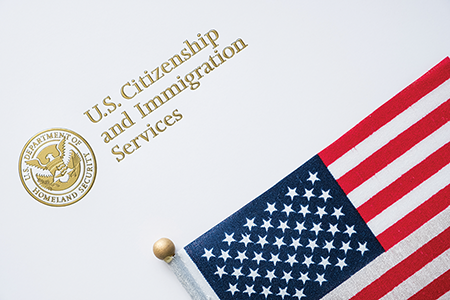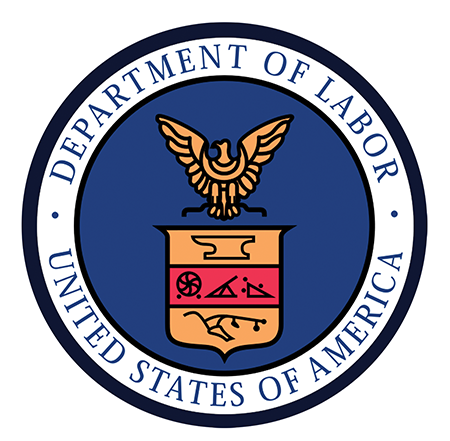Proposed opioid rules would make new drugs less addictive

|
The Food and Drug Administration is proposing tighter rules for opioid manufacturers by requiring new drugs to be less addictive, according to www.cnbc.com.
Acting FDA Commissioner Ned Sharpless withdrew the agency’s previous guidance June 20 and presented a tougher regulatory framework for evaluating applications for new opioids coming to the U.S. market. Under the proposal, a drug manufacturer would have to say whether a new drug has “any characteristics that would mitigate the risks of overdose, abuse or the development of addiction.”
Additionally, the FDA said: “Companies should also indicate whether their drugs have novel or greater risks compared to other opioids on the market and also note the public health implications of their products in terms of risks to non-patients, including members of the patient’s household, visiting relatives, friends and others.”
More than 130 people in the U.S. die every day from opioid overdoses, according to data from the Centers for Disease Control and Prevention. Construction industry workers are particularly susceptible to the opioid crisis—in part because of the industry’s aging workforce and the physically demanding nature of the job, which results in more workplace injuries that require medical intervention.
“Addressing the crisis of opioid addiction is an issue of great concern for our nation and remains a top public health priority for the FDA,” Sharpless said in a statement. “The agency continues to take new steps to confront this crisis, while also paying careful attention to the needs of patients in accessing appropriate pain management.”
The FDA accepted public comments on its proposal through Aug. 20 and will hold a public meeting Sept. 17 to discuss it.
NLRB often overturns rulings without notice or public input
A review of National Labor Relations Board decisions during the Trump administration shows the NLRB repeatedly has settled case law without giving advance notice or an opportunity for public input, according to Bloomberg Law.
The practice is drawing concern from some critics who say the Republican-controlled NLRB under the Trump administration is pushing its pro-management agenda more forcefully than previous boards. On July 3, the NLRB overturned precedent for employers withdrawing recognition of unions without being asked to do so by parties in the case.
NLRB Chairman John Ring (R) said in a statement that past boards have struck down or ignored prior decisions many times without briefing and it’s “inaccurate to say that the Board has regularly solicited amicus briefing before overturning precedent.”
Lauren McFerran, the only Democrat on the board, has said in dissents that it is a well-known practice for the NLRB to seek outside input in significant cases, listing 26 examples going back to 2006. GOP board members referenced six cases during the Obama era that scrapped precedent without public input; McFerran said a party at least addressed the possibility of overturning prior rulings in those instances.
Fordham University law professor Aaron Saiger says an NLRB decision that overturned precedent without prior notice or invitation for briefing could be vulnerable to claims the board violated its constitutional due process requirements or statuary bars against making unreasonable, arbitrary decisions. However, he said those claims could be argued that the lack of briefing is not a due process violation and the courts can’t add new rules to the NLRB’s decision-making process.
Boston College law professor Hiba Hafiz says though NLRB overturning precedent when no one asked it to can raise concerns, courts have not squarely held that doing so can be the sole basis for finding a decision unlawful.
New York law penalizes employers that harass immigrant employees

|
On Aug. 15, a new law took effect in New York that penalizes employers for harassing or discriminating against immigrant employees.
New York Gov. Andrew Cuomo signed the bill (A.5501/S.5791) into law July 27. It prohibits employer retaliation, including contacting U.S. immigration authorities or threatening to report the immigration status of an employee or an employee’s family member.
“There is no place for any form of harassment, intimidation, and abuse in the workplace,” Attorney General Letitia James said in a July 29 statement. “It is incumbent on us to help vulnerable workers be able to stand up for their rights without fear of punishment. This law does just that by protecting New Yorkers from being exploited by unscrupulous and predatory employers.”
The law codifies federal case law interpreting the anti-retaliation provisions of state labor law and the federal Fair Labor Standards Act, according to James’ office, which offered the measure to state lawmakers. The office has received numerous credible reports of employers threatening immigrant workers with potential deportation, according to the July 29 statement.
On July 25, a federal appeals court in New York ruled in favor of a Filipino guest worker allowing him to pursue forced-labor claims against a hotel services provider. The employee alleged the company threatened to withdraw its sponsorship of his visa if he quit or caused any problems.
Immigrants holding guest worker visas can be vulnerable to exploitation from employers because their legal statuses in the U.S. are contingent on their continued employment.
Government Accountability Office investigates DOL enforcement

|
The Government Accountability Office has launched an investigation into the Department of Labor’s wage enforcement priorities, according to Bloomberg Law.
The action follows calls from Democratic lawmakers to thoroughly examine DOL’s investigative procedures, as well as recent leadership changes within the agency. The GAO investigation will focus on how the DOL’s Wage and Hour Division responds to worker complaints and targets employers to recover back pay owed to workers.
In summer 2018, Reps. Bobby Scott (D-Va.) and Mark Takano (D-Calif.) asked GAO to review the Wage and Hour Division’s activities, expressing concerns the division could be doing more to ensure wages are returned to workers after back pay recovery.
As the GAO investigation begins, DOL is facing criticism and potential lawsuits regarding proposals on overtime pay and joint employer liability; a policy to add a bureaucratic layer to processing visas; and an in-house DOL judge questioning the actions of Cheryl Stanton, administrator of the Wage and Hour Division, who revoked enforcement power from her subordinates weeks after assuming her position.
DOL has seen a reduction in Wage and Hour Division field investigators in recent months; 775 investigators were employed in May 2019 compared with 974 in fiscal year 2016.



